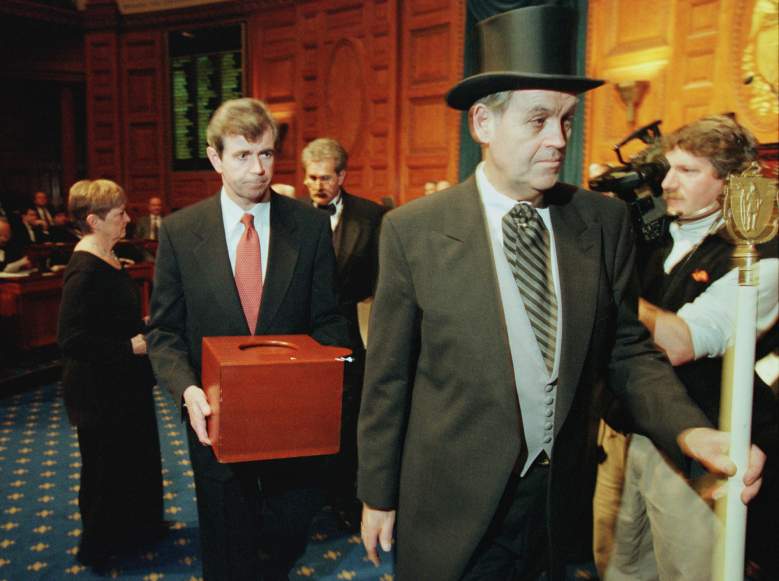
A joint session of Congress will be held today to tally the votes of the electoral college and certify the votes. The process is expected to be lengthier than usual because objections are anticipated. The meeting starts at 1 p.m. Eastern time Wednesday, January 6, 2021.
The Congressional joint session to count electoral votes is typically looked at as little more than a formality, but it has taken on added importance for the 2020 Presidential election because some Republican lawmakers allied with President Donald Trump have pledged to attempt to block certification of votes in key states. Read more about that here and watch a live stream of the meeting here.
Here’s what you need to know about the process:
The U.S. Constitution Requires Congress to Meet on January 6 & Complete an Official Count of Electoral Votes
The electoral college certification and joint session of Congress is required by the United States Constitution. Congressional members open sealed certificates from each state, containing a record of their votes. The votes are brought into the chamber in a mahogany box used for the occasion, according to the Associated Press.
Vice President Mike Pence, the President of the Senate, presides over the proceedings and declares the winner.
NPR described Pence’s role in the Senate as “ceremonial,” prescribed by law and the Constitution.
“I don’t think that Vice President Pence has any significant discretion in what he does,” said Joel Goldstein, an emeritus professor of law at St. Louis University and an expert in the vice presidency. “The Constitution assigns him a very modest role.”
That role is detailed in the Electoral Count Act of 1887. The act limits his powers. It was enacted following James Buchanan’s presidential win in 1857, when the Senate president overruled an objection against Wisconsin electors because their certification process had been delayed due to a a snowstorm in 1856, according to The Washington Post.
Pence’s role is to preside over the meeting, the act says. He opens certified electoral votes and gives them to appointed tellers in alphabetical order by state. The tellers read the votes and make a list of them, then present them back to Pence. Pence calls for any objections, and, if any are made, the House and Senate meet separately to discuss the objection. Once they come to a decision, Pence announces that decision.
Among those vowing to object are Rep. John Joyce, R-Altoona.
“Today I signed the official objection to the Pennsylvania electors ahead of tomorrow’s Electoral College certification vote,” he wrote on Twitter. “We must fight for free and fair elections – and the rule of law.”
Objections Can Be Made for Any Reason But Must Be Signed By a Member of the House & Member of the Senate
Any member of Congress can stand up and object on any grounds after a teller reads the certification from a state. The presiding officer cannot hear the objection unless it has been made in writing and signed by a member of the House and a member of the Senate. Then, the joint session enters a recess and the House and Senate enter separate sessions to consider the objection. Both chambers must agree to the objection by a simple majority vote for the objection to be sustained. Otherwise, the original electoral vote stands, the act says.
An objection to electoral college votes has not been considered since 2005. At the time, Democrats Rep. Stephanie Tubbs Jones of Ohio and Sen. Barbara Boxer of California, both Democrats, objected to their states electoral votes, claiming there were voting irregularities. The House and Senate debated the objection and rejected it. This was only the second time a vote of that nature has occurred, according to the Associated Press.
There were also objections made in 2017, with about six House Democrats objecting to electoral votes for Trump. They claimed voter suppression occurred and cited allegations of Russian interference. Joe Biden presided over that joint session as vice president and president of the Senate, and rejected the efforts because they did not have the required Senate sponsors, according to USA Today.
READ NEXT: FACT CHECK: Can Vice President Mike Pence Change the Election?
